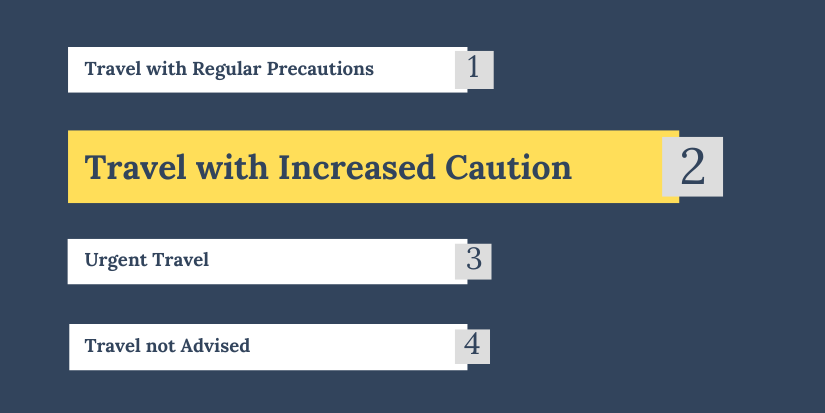
VISA REGIME
For holders of national passports and other travel documents: Visa required
For holders of diplomatic and official passports: No visas required for visits of up to 90 days
ENTERING AND LEAVING THE COUNTRY
The Republic of Equatorial Guinea is mainly accessed by air. Visas can be obtained at the Embassy of the Republic of Equatorial Guinea in Rome (usually single-entry, 30 days of stay), covering the Republic of Serbia on a non-residential basis. In addition to a visa, entering Equatorial Guinea requires a yellow card - certificate on vaccination against yellow fever.
SOCIAL SECURITY AGREEMENT
No social security agreement has been signed.
USEFUL INFORMATION
HEALTH SITUATION – Vaccination against hepatitis A is recommended as travel vaccination. In case of long-term stay or special exposure it is also recommended to get vaccinated against hepatitis B, typhoid, rabies and meningococcal disease. There is a high risk of tropical malaria, occurring nearly throughout the country during the entire year. Only drink bottled water, never tap water. If bottled water is not available, use filtered, disinfected or boiled water. Tuberculosis, and in particular drug-resistant forms of it are frequent in Equatorial Guinea, therefore visibly ill people who cough should be avoided.
SECURITY SITUATION – The crime rate is moderate compared to countries in the region. However, particular caution is required in the capital of Malabo and second-largest city Bata. Robberies of persons walking alone or spontaneously hailing taxi vehicles occur occasionally, therefore it is recommended to move around town in groups. Break-ins in apartments and houses are also on the increase. The burglars are often armed, e.g. with machetes. It is advised not to resist a potential attack. If possible, only use taxi services with someone who knows the city, and do not share a taxi with others. Businesspeople, if possible, should use a vehicle with a driver. During your stay in Equatorial Guinea you may only drive a motor vehicle with an international driving permit.
Money, personal ID, driver’s licences, airline tickets and other important documents should be kept safe. Cashless payment should be preferred, and only cash considered sufficient for the day should be carried on one's person, without unnecessary valuables. Particular caution should be exercised in large crowds.
OTHER – The local currency is the Equatorial Guinean franc. The prices in Equatorial Guinea are relatively high. Credit cards (VISA, MasterCard) are not universally accepted. ATMs sometimes only accept cards issued by national banks. Authentication is difficult due to poor internet connections. Bring along enough cash in euros to exchange at the hotel.
Contact information:
During your stay in Equatorial Guinea, for consular assistance and protection you may contact the Embassy of the Republic of Serbia in Luanda, Angola, covering Equatorial Guinea on a non-residential basis, at the following telephone number: +244 222 321 421, 222 327 240, 222 320 393, or mobile telephone number + 244 945 904 912 or e-mail serbiemb@netcabo.co.ao
